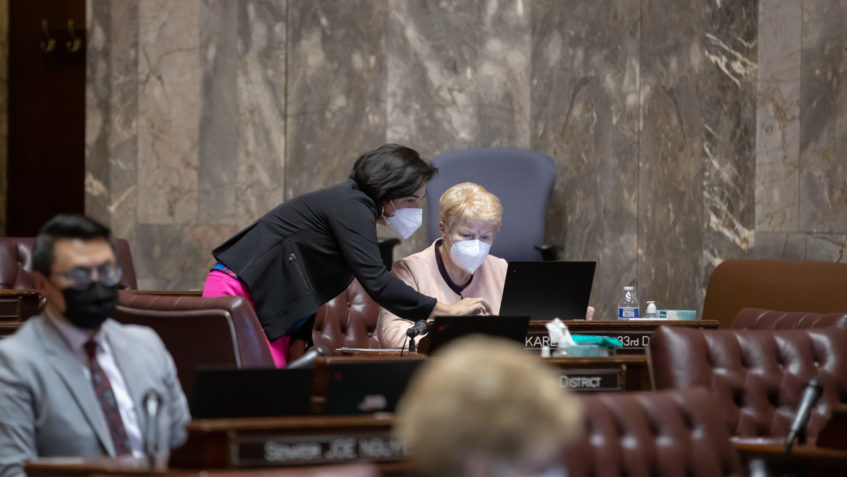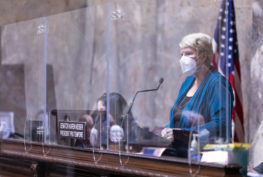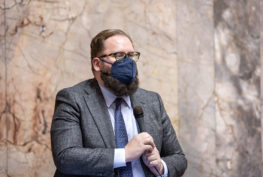OLYMPIA — Workers in Washington state would benefit from new apprenticeship programs in growing fields, reinvigorated support for existing apprenticeships, and significantly increased state funding for apprentices at public colleges, under two bills scheduled for committee hearings on Thursday.
“The ‘earn-while-you-learn’ approach, with both classroom instruction and supervised on-the-job training, makes apprenticeships accessible to many—especially women and people of color—who can’t take time off work or afford to go to a traditional college or university,” said Sen. Karen Keiser (D-Des Moines), chair of the Senate Labor, Commerce & Tribal Affairs Committee. “We can build a more diverse and expanded apprenticeship system that opens the door to a successful future for so many more Washingtonians.”
Currently these benefits are out of reach for many workers and employers because several high-growth fields lack existing or sufficient apprenticeships.
“So many of our neighbors – and so many across the state – have built their educational and career journeys with our nation-leading apprenticeship programs,” said Sen. Emily Randall (D-Bremerton), chair of the Senate Higher Education & Workforce Development Committee. “We can do a better job of recognizing and honoring their many hours of on-the-job learning they’ve invested, and make sure they get credit for that when they want to pivot and grow in their careers.”
SB 5764, sponsored by Randall, would create permeable pathways between apprenticeship programs and college so that students in apprenticeship programs are treated equally when it comes to tuition and grants, and successful apprenticeship graduates have a clearer pathway to earn an associate degree or four-year bachelor’s degree in the future, if they choose.
Randall’s bill would improve a funding system that can create disincentives for community colleges to partner with and participate in state-registered apprenticeship programs, and instead establish parity in funding for both apprenticeship students and traditional college students. Red tape that prevents apprenticeship students from using the Washington College Grant would also be removed. And outdated systems that burden individual apprentices, making college credit difficult to earn for on-the-job-experience and coursework in their registered apprenticeship programs, would be reformed, recognizing more completely the value of their experience.
SB 5600, sponsored by Keiser, would expand apprenticeships across the board. This approach builds on work done by the building trades, as well as the new state initiative Career Connect Washington and other advances since the Legislature passed the Workforce Education Investment Act in 2019.
The new bill would create collaborative platforms by economic and industry-based sectors, giving industry stakeholders the tools to work together to modernize and improve their offerings, as well as fill gaps in rapidly changing industries. Platforms for health care, maritime, manufacturing, high technology and education are among the sectors identified as high-skill, high-job-growth areas for innovative apprenticeships.
Keiser’s bill would include three new grant programs to fund wraparound support services to address barriers to participating in apprenticeships, help existing apprenticeships incorporate remote instruction, and upgrade equipment to expand capacity in existing apprenticeships.
Hearing information:
Thursday, Jan. 13
8 a.m.: The Senate Labor, Commerce & Tribal Affairs Committee will hear public testimony on SB 5600, which concerns the sustainability and expansion of Washington’s apprenticeship programs. Watch on TVW.
1:30 p.m.: The Senate Higher Education & Workforce Development Committee will hear public testimony on SB 5764, to improve opportunities for Washington students who are in or have completed a state apprenticeship program, by removing barriers to increase access to higher education and creating more permeable pathways. Watch on TVW.
Read more in this Seattle Times op-ed from Sens. Keiser and Emily Randall: “Help more students access quality job apprenticeships.”





